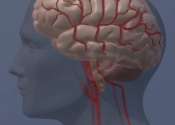'Boomeranging' back to a parents' home negatively affects young adults' mental health
The number of young adults living in their own household has dropped dramatically in the last decades in the United States for a number of economic and social reasons. In a study that will soon be published in the peer-reviewed ...
Nov 19, 2018
0
11









